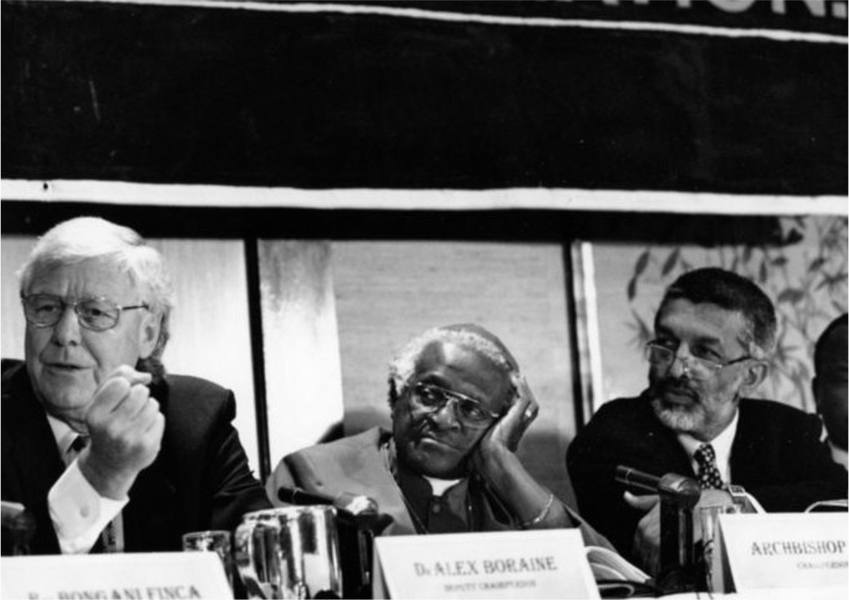The origins of the transitional justice field are often traced to the late 1980s and early 1990s, when South Africa and countries in Latin America, namely Argentina and Chile, and in Eastern Europe embarked on a transition from authoritarian rule to democracy. Broad social movements led by committed civil society organizations and inspiring leaders demanded to know the truth about and justice for systematic abuses and human rights violations perpetrated by former regimes. Putting victims’ rights to truth, justice, and reparation at the center of the unfolding political transformations, they called for reforms that would prevent the repetition of such atrocities and lay the foundation for more peaceful and inclusive societies.
By the late 1990’s, the lawyer and former South African politician Alex Boraine, who had played a pivotal role in his country’s Truth and Reconciliation Commission serving as its deputy chair and right-hand man to the chair Archbishop Desmond Tutu, was regularly traveling to countries emerging from conflict or repression around the world. Victims, civil society representatives, and state actors would ask him to share his experiences in South Africa and offer advice. As these requests grew in number and frequency, he began contemplating an international organization dedicated to supporting societies undertaking similar transitions, providing strategic advice and technical assistance, opening up spaces for victims, building their capacity and amplifying their voices, and developing best practices. Ultimately, such an organization would help achieve justice even in places where justice seems impossible.
In 2000, Boraine and other prominent human rights activists and practitioners, including well-known expert on truth commissions and transitional justice Priscilla Hayner, came together under the auspices of the Ford Foundation to explore best strategies for helping societies deal with legacies of massive human rights abuses and achieve sustainable peace. Over the next year, Boraine, Hayner, and many others, with the unwavering support of the Ford Foundation, would work tirelessly until the ICTJ was founded in 2001.
Since then, the organization has engaged in more than 50 countries, including Burundi, Cambodia, Guatemala, Peru, Sierra Leone, Timor-Leste, and countries of the former Yugoslavia, working side by side with victims. We have partnered with countless victims, activists, and social and political leaders, supporting them on their quest for accountability and peace and helping them achieve justice and build sustainable networks and alliances for peace, many of which remain strong today. As a hub of groundbreaking research and policy analysis and a global meeting point for victims, duty-bearers, experts, and practitioners, ICTJ has successively consolidated and shaped the field of transitional justice.
Today, ICTJ provides advice, support, and technical assistance to victims, members of civil society, and state and international actors committed to justice in Afghanistan, Colombia, Lebanon, Nepal, Sudan, Syria, Tunisia, and Uganda, to name a few. In the fast-changing world, ICTJ is continually evolving and adapting its methodology to develop innovative solutions to emerging problems, advance its mission, and achieve justice for victims of human rights violations.
